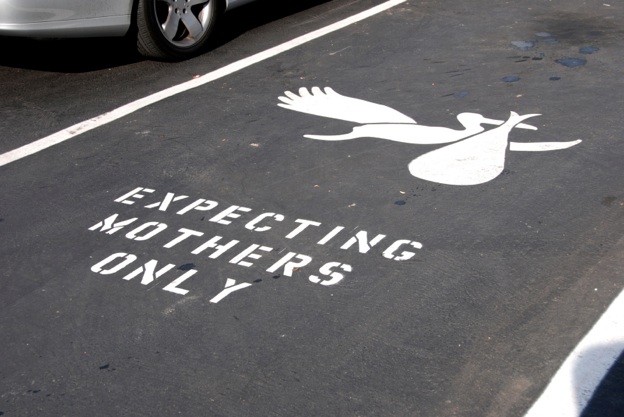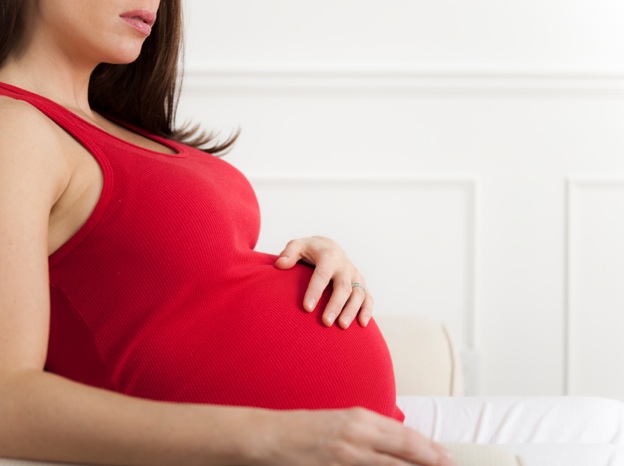SingaporeMotherhood | Pregnancy
November 2012
Coping with Pregnancy Emotions

For a woman, pregnancy is a time of change. Physically, your body is changing to accommodate your baby’s needs. Emotionally, you are beginning to realise that you are now responsible for a new life. Spiritually, you may be thinking about bigger questions such as your place in the world. You are also coping with hormonal shifts and these may result in mood swings.
Above all this, a pregnant mother may also be concerned with balancing motherhood and career, social support issues and practical newborn care, says Dr Cornelia Chee, Senior Consultant and Director of the Women’s Emotional Health Service at the National University Hospital.
[banner][/banner]
Psychologists say that our feelings towards pregnancy arise from our thoughts and beliefs about pregnancy, birth and motherhood. They tell us that these emotions help us to identify our unspoken attitudes, ideas or misconceptions. Therefore, acknowledging our feelings is a good starting point to deal with our thoughts and ideas about pregnancy.
The emotional work that you do in the nine months of gestation becomes a rite of passage as you prepare to become a mother. This could be one of your goals in your preparation for childbirth and parenting.
Your Body Image
Many of us grow up with insecurities about our bodies. You may feel that you do not look good enough. You may have spent your adolescent years dieting or feeling self-conscious.
The physical changes in pregnancy may magnify your insecurities, causing sadness or conflicting feelings. Alternatively, you may find yourself questioning your ideas about your body.
You can cope with body image issues by first understanding why and how physical changes occur during pregnancy. Knowing that hormones cause breast glandular tissue to multiply for future milk production can help you to accept swollen, enlarged breasts better.
Another way to deal with it: Celebrate your changing body! Take long luxurious baths or go for pedicures and feet massages. Or take a leaf from Mrs Venkataram, who works in the fast-paced finance industry. This new mum to a six-week-old found a way to help herself relax and focus on what was happening within: “Prenatal yoga helped me slow down, become more self-aware about my body and conscious of what I was thinking and feeling. I found peace within myself. It actually made a huge difference to my frame of mind when I went into labour, and even to those early weeks of being a mum!”
Redefining Who You Are
Turning inward and finding oneself can be tough at any time. When pregnant, this task becomes even more challenging. As you begin to visualise yourself as a mother and reflect on the kind of mother you want to be, you may face an identity crisis. A pregnant mother has to redefine who she is and what her priorities are. You will probably be thinking about these:
Your relationship with your spouse
Pregnancy also poses new challenges for couples. A couple who has been glossing over discussions about important issues like finances will find that pregnancy and the impending arrival of a baby bring about a sense of urgency to get these issues settled.
Speak with your spouse about your thoughts on the pregnancy and your expectations and ideas about parenthood. Childbirth classes and time spent with other parents may help open up topics for discussion with your spouse, offering opportunities for deeper conversation.
Expectant parents may find their self-image within their spousal relationship changing; where they were partners and lovers before, they are now also parents.
As Steve and Sharon Biddulph, authors of The Secret of Happy Parents explain, the mother-baby bond inevitably causes some change to the husband-wife bond. Understand where the feelings are coming from and affirm your love for your partner verbally and in actions. Doing this can support and enhance your relationship.
Your relationship with your other children
If you are having a subsequent baby, you may wonder whether you can care for another baby and worry about your child’s transition to being a big brother or sister. Many mothers feel guilty that their older children have to grow up to be The Older Ones.
Be encouraged, you do have what it takes to be the mother of two (or more!). A new sibling may mean that your older child becomes more independent – this is a positive part of growing older. Your relationship with your firstborn will evolve; recognise that this is part of a healthy parent-child relationship.
Your reflections on your own childhood
As we grew up, we experienced our parents’ parenting style firsthand. As adults, we approach parenting with expectations and hopes that are largely based on our own childhood experiences, explain the Biddulphs in The Secret of Happy Parents. We may feel passionately about doing better for our own children or doing what meant the most to us as children.
The introspection that comes with pregnancy may be difficult or painful but it can be very meaningful. If you have an especially tough time, work with a counsellor. Expect resulting shifts – positive ones – in your relationships with your parents or siblings.
Cassandra, mother to a six-year-old and a two-year-old, talks about revisiting her childhood when parenting. “I was raised quite harshly. When I was expecting, I thought hard about how I wanted to raise my child. But in real-life, this does not always happen! I suppose every generation tries to do better than the one before. That’s how society changes and parents stay relevant to the time their kids are growing up in. After all, our parents grew up in a very different sort of world!”
Learning to Trust Your Body
Living in today’s largely technological world, we may doubt what our bodies can do, unconsciously believing that they are inadequate. For example, when it comes to birthing, we may decide to have pain-relieving drugs without even considering the possibility of delivering without medications. Our feelings may be compounded by some of the attitudes we encounter as pregnancy advances.
Antenatal care that revolves around rigorous testing for abnormalities adds to an expectant mother’s sense of mistrust of her body. Trust in your body’s design and its innate capabilities!
According to perinatologist Dr Marsden Wagner in his book, Born in the USA: How a Broken Maternity System Must Be Fixed to Put Women and Children First, many women approach pregnancy thinking first about problems that need to be diagnosed and treated. While it is necessary that complications are identified and managed, it would be more beneficial to focus on pregnancy and birth as life-enriching experiences.
Perinatal Anxiety Disorders & Depression
When normal pregnancy worries become severe enough to cause distress and physical symptoms, it may mean that an anxiety disorder has developed. Up to 20 per cent of expectant mothers experience an anxiety disorder or depression.
According to PANDAS (Pre and Postnatal Depression Advice & Support), a non-profit foundation that supports individuals across the United Kingdom who are affected by pre or postnatal depression, up to one in 10 pregnant women will face prenatal depression.
Symptoms of anxiety disorders include:
- excessive worry that interferes with day-to-day activities
- insomnia
- appetite loss
- dizziness
- nausea
- hot flashes
- restlessness and panic attacks
Additionally, symptoms of depression include:
- fatigue
- incessant crying
- wanting to be isolated
Prenatal anxiety disorders can be caused by hormonal changes and emotional challenges such as a previous miscarriage, financial worries or lack of social support.
Factors that increase a mother’s risk of getting depression or anxiety disorders are:
- a personal history of depression or anxiety disorders
- a family history of such illnesses
- thyroid problems
Dr Cornelia Chee stresses the importance of having a positive mindset, self-care and social support. She suggests seeking professional help if symptoms continue for a long time.
Effects of Stress on You & Your Unborn Baby
Anxiety increases the release of stress hormones such as cortisol. Chronic, untreated stress levels affect your unborn baby’s growth and metabolism; intrauterine growth retardation or preterm labour may result, shares Dr Chee.
Your baby’s exposure to stress in utero may influence how he will be primed to cope with stress later in life, she adds.
If you are pregnant and feeling down, knowing that your emotional state affects your baby’s environment need not cause alarm. Reflect on your feelings, address unquestioned beliefs, nurture yourself and seek help. All these actions go towards creating pregnancy peace and shaping your baby’s world – from the very beginning.
The National University Hospital (NUH) has a Women’s Emotional Health Service. Call the hotline at 6772 2037 to book an appointment. KK Women’s and Children’s Hospital has a Mental Wellness Service specially for women with perinatal problems. You do not have to be a patient at either hospital to use these services.
All content from this article, including images, cannot be reproduced without credits or written permission from SingaporeMotherhood.
Follow us on Facebook, Instagram, and Telegram for the latest article and promotion updates.






